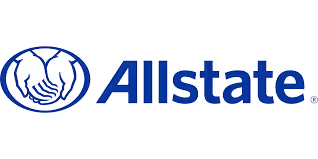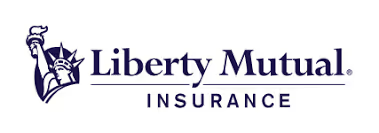






5-Star Valuation Services, Loved by Hundreds
Frequently Asked
Questions
No Frequently Asked Questions Found.
The essential mechanism involves policyholders paying regular premiums in exchange for financial protection against predefined potential losses. This risk management strategy allows people and organizations to navigate uncertain circumstances with greater confidence and stability.
Coverage operates across multiple dimensions, addressing diverse potential scenarios ranging from property damage to personal liability. The breadth and depth of protection depend entirely on the specific policy's terms, which outline precisely what circumstances and financial losses are eligible for compensation.
When evaluating insurance coverage, individuals must carefully assess their unique risk profile, considering factors like personal assets, potential liabilities, and financial vulnerabilities. Different types of insurance—such as property, health, auto, and liability policies—offer targeted protections designed to address specific potential challenges.
The value of comprehensive insurance coverage extends beyond immediate financial compensation. It provides psychological reassurance, enabling policyholders to pursue personal and professional activities with reduced anxiety about potential catastrophic losses. By strategically transferring risk, individuals can maintain financial resilience even when unexpected events occur.
Understanding policy details becomes paramount in maximizing coverage effectiveness. Policyholders should meticulously review limitations, exclusions, deductibles, and coverage limits to ensure their protection aligns precisely with their individual needs and potential risk exposures.
The process encompasses a comprehensive analysis that extends beyond simple price estimation. Professional appraisers conduct thorough examinations that consider multiple dimensions of property valuation, including current market conditions, specific property characteristics, and potential replacement costs. These detailed assessments help insurers and property owners align coverage precisely with actual asset value.
Different property types undergo unique evaluation approaches. Residential properties, commercial real estate, and valuable personal assets like artwork or collectibles each require nuanced assessment techniques. Appraisers employ sophisticated methodologies to capture the intricate details that influence an asset's true market worth.
The evaluation process typically involves several critical steps: comprehensive market research, detailed on-site property inspection, systematic documentation of property features, and careful calculation of replacement or reconstruction expenses. This multi-faceted approach ensures a robust and accurate valuation that reflects the property's genuine economic standing.
Accurate insurance coverage appraisals deliver significant advantages for property owners. They protect against potential financial vulnerabilities by preventing underinsurance, facilitate smoother claims processes, and provide a reliable mechanism for periodically adjusting coverage as market conditions evolve. By establishing a precise financial baseline, these appraisals enable property owners to make informed insurance decisions with confidence and clarity.
Ultimately, an insurance coverage appraisal represents more than a simple valuation—it is a strategic tool for financial risk management, offering property owners peace of mind and strategic insights into their asset's true economic potential.
An asset appraisal represents a comprehensive professional evaluation designed to determine the precise fair market value of tangible and intangible assets. Conducted by highly trained and certified professionals, this specialized process involves meticulous analysis and expert assessment across diverse asset categories, including real estate, industrial equipment, personal property, and specialized collections.
Professional appraisers leverage sophisticated methodologies, extensive market knowledge, and rigorous analytical techniques to generate precise valuations. The process goes beyond simple price estimation, incorporating nuanced considerations of condition, market trends, historical performance, and potential future value.
The evaluation typically involves detailed physical inspection, thorough research of comparable market transactions, and application of specialized valuation approaches tailored to the specific asset type. Appraisers must remain objective, utilizing standardized professional standards and comprehensive analytical frameworks to ensure credible and defensible value assessments.
Critically, asset appraisals provide stakeholders with an authoritative and independent perspective on an asset's economic worth. These assessments serve as foundational documents for financial decision-making, offering clarity and transparency in complex transactional environments where accurate valuation is paramount.
The depth and complexity of asset appraisals reflect the intricate nature of modern economic ecosystems, where precise asset valuation can significantly impact strategic planning, financial reporting, and risk management across individual and institutional contexts.
Online asset appraisals have emerged as a sophisticated and efficient method for determining the value of various assets without the constraints of traditional in-person evaluations. Modern technology enables professional appraisers to conduct comprehensive assessments through multiple digital channels, including high-resolution photograph submissions, detailed documentation, and interactive video consultations.
The digital appraisal process typically involves a strategic approach where clients provide meticulously captured images and comprehensive descriptions of their assets. Appraisers can carefully analyze these materials, leveraging their expertise to evaluate condition, authenticity, and market value with remarkable precision. For more complex or nuanced assets, real-time video consultations allow direct interaction, enabling appraisers to request specific details or clarifications that might impact the valuation.
This innovative approach offers significant advantages, including unparalleled convenience, time efficiency, and greater scheduling flexibility. Clients can initiate the appraisal process from anywhere, eliminating geographical limitations and reducing logistical challenges associated with traditional appraisal methods. Advanced digital platforms facilitate seamless communication, ensuring thorough and accurate assessments while maintaining the rigorous professional standards expected in asset valuation.
Video conferencing tools like Zoom, Skype, and Google Meet have become integral to this process, allowing appraisers to conduct live, interactive evaluations across various asset categories, including personal property, collectibles, equipment, and specialized items. The result is a comprehensive, professional assessment that meets industry standards while providing clients with timely and reliable valuation insights.
Asset appraisers are specialized professionals who play a crucial role in determining the value of diverse assets across multiple domains. Their expertise spans various sectors, each requiring unique technical knowledge and analytical skills to provide precise valuations. The landscape of asset appraisal is complex and nuanced, encompassing several distinct professional categories.
Real estate appraisers focus on property valuation, meticulously examining residential, commercial, and industrial properties. They analyze critical factors like location, structural condition, comparative market data, and neighborhood trends to establish accurate property values. Their assessments are fundamental in real estate transactions, mortgage lending, tax assessments, and investment strategies.
Personal property appraisers specialize in evaluating tangible assets such as fine art, jewelry, antiques, and collectibles. These professionals develop deep expertise in specific item categories, understanding intricate market dynamics, historical significance, and condition-related nuances that influence an item's monetary worth. Their evaluations are typically utilized for insurance purposes, estate planning, and potential resale scenarios.
Business valuation appraisers employ sophisticated methodologies to assess the comprehensive worth of companies or business interests. They leverage multiple approaches including income-based, market-comparative, and asset-based techniques to determine fair market value. Their insights are critical during mergers, acquisitions, partnership dissolutions, and financial reporting processes.
Machinery and equipment appraisers concentrate on industrial and commercial equipment valuation. They conduct thorough analyses considering equipment age, technological relevance, operational condition, and current market demand. Their assessments support critical business decisions involving asset liquidation, financing, and strategic planning.
Intellectual property appraisers navigate the complex realm of intangible assets, evaluating patents, trademarks, copyrights, and trade secrets. Their sophisticated valuation techniques help organizations understand the economic potential of innovative intellectual assets, supporting licensing negotiations, strategic partnerships, and financial transactions.
Financial asset appraisers specialize in assessing securities, stocks, bonds, and other financial instruments. They integrate comprehensive market analysis, economic indicators, and financial performance metrics to provide precise valuations essential for portfolio management, taxation, and potential litigation scenarios.
Each category of asset appraiser brings distinctive skills and deep domain expertise, ensuring that valuations reflect current market conditions, adhere to professional standards, and provide reliable insights for stakeholders across various industries.
Asset appraisals serve as a critical mechanism for understanding the true value of tangible and intangible property across multiple professional and personal contexts. These comprehensive evaluations provide precise monetary assessments that support critical decision-making processes in finance, legal, and strategic planning domains.
Financial professionals rely on asset appraisals to establish accurate valuations that inform tax strategies, insurance coverage, and investment decisions. By obtaining a professional assessment, individuals and organizations can protect their financial interests and ensure compliance with regulatory requirements.
In legal scenarios such as divorce settlements, estate planning, and business disputes, asset appraisals offer an objective, standardized method of determining fair market value. These detailed evaluations help mitigate potential conflicts by providing transparent, defensible valuation documentation.
Insurance protection represents another crucial area where asset appraisals prove invaluable. Precise valuations enable property owners to secure appropriate coverage levels, ensuring adequate financial protection against potential losses from theft, damage, or unexpected events.
For businesses, asset appraisals deliver strategic insights into organizational wealth, supporting critical choices about capital investments, potential mergers, and asset optimization. These evaluations contribute to a comprehensive understanding of an enterprise's financial landscape, enabling more informed strategic planning.
Ultimately, professional asset appraisals provide stakeholders with confidence and clarity, transforming complex valuation challenges into actionable financial intelligence. By delivering rigorous, methodical assessments, these evaluations empower decision-makers across personal and professional domains.
Why Accurate Asset Valuation Matters for Insurance Protection
The Critical Role of Precise Asset Valuation in Insurance Protection
Accurate asset valuation is fundamental to ensuring comprehensive insurance protection for both individuals and businesses. Without a precise understanding of your assets' true value, you risk significant financial vulnerability in the event of unexpected loss or damage.
Key Considerations in Asset Valuation
- Coverage Precision: Insurance companies rely on detailed asset valuations to determine appropriate coverage levels
- Financial Risk Management: Prevents both underinsurance and costly over-insurance scenarios
- Comprehensive Protection: Ensures your assets are fully protected against potential risks
Factors Impacting Asset Value
Multiple dynamic elements influence asset valuation:
- Market Fluctuations
- Asset Depreciation
- Technological Advancements
- Economic Conditions
Why Professional Valuation Matters
Professional appraisers provide critical insights that go beyond simple numeric calculations:
- Detailed analysis of current market trends
- Expert assessment of item-specific value characteristics
- Comprehensive documentation for insurance purposes
Strategic Benefits of Accurate Valuation
Precise asset valuation offers more than financial protection—it delivers strategic advantages:
- Reduced financial uncertainty
- Enhanced risk management
- Potential premium optimization
- Regulatory compliance
Protecting Your Financial Future
Accurate asset valuation is not just about numbers—it's about securing your financial peace of mind. By understanding the true value of your assets, you create a robust safety net that protects against unforeseen circumstances and provides confidence in your insurance coverage.
What Types of Assets Require Professional Appraisal?
Understanding the various types of assets that need professional appraisal is essential for ensuring adequate insurance coverage. Professional appraisal helps in determining the current market value of an asset, which can greatly influence its protection under an insurance policy.
Key Asset Categories Requiring Professional Appraisal
Real Estate
Real estate assets, including residential properties, commercial buildings, and land, are critically important for comprehensive insurance appraisal. Key considerations include:
- Location and neighborhood characteristics
- Property condition and structural integrity
- Total square footage and land value
- Recent comparable property sales
Accurate appraisal ensures appropriate coverage limits and financial protection against potential losses.
Household Items
Personal belongings can represent significant financial value, especially:
- Furniture collections
- Fine art and antiques
- High-end electronics
- Rare collectibles
Professional appraisals establish precise monetary worth, critical for comprehensive insurance claims and protection.
Business Equipment
Business assets require meticulous valuation, including:
- Specialized machinery
- Technology infrastructure
- Custom manufacturing tools
- Transportation and logistics equipment
Comprehensive appraisals help businesses understand asset value, potential depreciation, and appropriate insurance coverage.
Vehicles
Vehicle appraisals are essential for:
- Personal automobiles
- Classic and collector vehicles
- Commercial transportation assets
- Specialized industrial vehicles
Precise market value assessment ensures proper insurance protection and accurate financial documentation.
Jewelry and Art
High-value personal assets require expert evaluation, considering:
- Current market trends
- Historical significance
- Craftsmanship and provenance
- Rarity and condition
Professional appraisals provide definitive valuation for insurance and potential resale purposes.
Comprehensive asset appraisal offers owners critical financial protection, ensuring peace of mind and appropriate insurance coverage across diverse asset categories.
Navigating the Asset Appraisal Process: A Comprehensive Guide
Key Steps in the Asset Appraisal Process
Understanding the asset appraisal process is essential for comprehensive insurance coverage. A precise appraisal establishes the true value of your belongings and ensures financial protection in unexpected scenarios.
1. Comprehensive Asset Identification
- Create a detailed inventory of assets requiring appraisal
- Include categories such as:
- Real estate
- Vehicles
- Jewelry
- Antiques
- Business equipment
- Prioritize items based on monetary value and insurance needs
2. Selecting a Qualified Appraiser
- Research professionals with specialized expertise
- Evaluate potential appraisers based on:
- Professional credentials
- Industry experience
- Client testimonials
- Market knowledge
- Verify the appraiser's understanding of specific asset types
3. Preparing for the Appraisal Appointment
- Gather comprehensive documentation for each asset
- Collect supporting evidence such as:
- Purchase receipts
- Maintenance records
- Previous valuation documents
- Provenance information
- Be prepared to provide detailed item history
4. Understanding the Appraisal Evaluation
- Professional appraisers conduct thorough assessments
- Evaluation factors include:
- Current market trends
- Comparable sales
- Item condition
- Historical significance
- Expect a comprehensive analysis process
5. Analyzing the Appraisal Report
- Carefully review the detailed valuation document
- Verify:
- Accuracy of item descriptions
- Precise valuation amounts
- Methodology explanations
- Seek clarification on any unclear aspects
6. Insurance Policy Alignment
- Collaborate with insurance provider
- Update policy to reflect:
- Current asset values
- Comprehensive coverage
- Potential replacement costs
- Minimize potential financial risks
By meticulously following these steps, you'll successfully navigate the asset appraisal process, ensuring robust insurance protection for your valuable possessions.
Selecting the Right Appraiser: Key Considerations and Best Practices
Key Factors for Selecting an Asset Appraiser
Choosing the right appraiser is a critical decision that directly impacts the accuracy of your asset valuation and insurance coverage. The following considerations will help you make an informed selection:
Professional Qualifications and Credentials
- Verify essential certifications and licenses specific to the asset type
- Check professional organization memberships
- Confirm ongoing education and industry standard compliance
- Look for specialized designations in the relevant asset category
Expertise and Specialization
- Prioritize appraisers with extensive field experience
- Seek professionals with deep knowledge of specific asset types
- Evaluate understanding of local market trends and valuation nuances
- Consider appraisers with proven expertise in your particular asset class
Comprehensive Appraisal Methodology
- Request detailed explanation of valuation approaches
- Ask for sample appraisal reports
- Confirm adherence to industry valuation standards
- Assess clarity and thoroughness of reporting
Professional Communication and Approach
- Evaluate responsiveness and accessibility
- Assess ability to explain complex valuation concepts
- Look for transparent and professional communication
- Ensure willingness to answer detailed questions
Verification of Reputation
- Request and review client testimonials
- Check professional references
- Research past performance and client satisfaction
- Consider independent reviews or ratings
By meticulously evaluating these critical elements, you can select an appraiser who will provide an accurate, credible valuation that supports comprehensive insurance coverage for your valuable assets.
Valuation Strategies: Methods for Determining Asset Worth
Understanding Asset Valuation Strategies
Determining the worth of assets for insurance coverage requires a comprehensive understanding of various valuation approaches. Each method offers unique insights into an asset's true value, ensuring accurate protection and financial planning.
Primary Valuation Methods
- Market Approach
- Determines asset value based on recent comparable sales
- Analyzes transactions of similar items in the marketplace
- Most effective for real estate and personal property
- Provides a realistic market-driven valuation
- Cost Approach
- Calculates value by estimating replacement costs
- Subtracts depreciation from total replacement expense
- Ideal for unique or specialized assets
- Reflects current market replacement conditions
- Income Approach
- Projects future income potential of the asset
- Discounts projected income to present value
- Critical for income-generating properties
- Provides insights into asset's financial performance
- Sales Comparison Approach
- Refines market approach with detailed asset comparisons
- Adjusts for specific features, conditions, and locations
- Ensures more nuanced and precise valuation
- Accounts for unique asset characteristics
Key Considerations in Asset Valuation
Selecting the appropriate valuation method requires careful analysis of multiple factors, including:
- Specific asset type and characteristics
- Current market conditions
- Intended purpose of the appraisal
- Available comparative data
A comprehensive valuation strategy not only supports accurate insurance coverage but also provides valuable insights for financial planning and strategic decision-making.
When and How Appraisals Impact Insurance Claims
Timing and Strategic Importance of Asset Appraisals
Asset appraisals are critical touchpoints in the insurance coverage process, serving as foundational documents that protect both policyholders and insurance providers. Understanding when and how these professional assessments impact insurance claims can significantly influence financial outcomes.
When to Conduct Appraisals
- Before initial insurance policy purchase
- During policy renewal periods
- After significant asset modifications or improvements
- Following major market value shifts
- When acquiring new high-value assets
Key Ways Appraisals Impact Insurance Claims
- Establishing Precise Asset Value
A professional appraisal creates a documented, objective valuation that serves as a critical reference point during claims processing. This documentation helps prevent potential financial shortfalls by ensuring accurate coverage.
- Claim Validation and Documentation
Appraisals provide third-party verification of an asset's pre-loss value, adding credibility and authenticity to insurance claims. Insurers rely on these professional assessments to expedite and validate claim settlements.
- Dispute Prevention
By offering an impartial, professionally conducted valuation, appraisals can significantly reduce potential conflicts between policyholders and insurance providers. The objective assessment serves as a neutral reference point for negotiations.
- Premium Optimization
Accurate appraisals enable insurers to develop more precise coverage levels and potentially more competitive premium rates. This ensures that policyholders are neither over-insured nor under-insured.
Strategic Recommendations
Proactive and regular asset appraisals are essential for maintaining comprehensive insurance coverage. By consistently updating valuations, policyholders can ensure their assets remain accurately represented and protected.
The appraisal process transforms insurance from a transactional service to a strategic financial protection mechanism, providing clarity, transparency, and peace of mind for all parties involved.
Replacement Cost vs. Actual Cash Value: Understanding the Difference
When it comes to asset appraisal for insurance coverage, understanding the difference between Replacement Cost and Actual Cash Value (ACV) is crucial for protecting your financial interests. These key insurance terms significantly impact claim settlements and overall asset protection strategies.
What is Replacement Cost?
Replacement Cost represents the total expense required to replace an asset with a brand new equivalent, without considering depreciation. Key characteristics include:
- Full cost of replacing an asset at current market prices
- No deduction for wear and tear or age
- Provides comprehensive coverage for asset restoration
Example Scenario
If a home is destroyed, Replacement Cost coverage would fund constructing an identical home using current building materials and standards, regardless of the original asset's age.
Understanding Actual Cash Value (ACV)
Actual Cash Value calculates an asset's worth by subtracting depreciation from its original replacement cost. This approach considers:
- Current market value of the asset
- Reduction in value due to age and wear
- Typically results in lower claim payouts
Practical Illustration
A 10-year-old roof would receive significantly less compensation under ACV, reflecting its diminished value compared to a new roof.
Making the Right Coverage Choice
Selecting between Replacement Cost and ACV involves carefully weighing several factors:
- Premium costs
- Potential out-of-pocket expenses
- Long-term financial protection
- Asset type and expected depreciation
While ACV policies often have lower premiums, they can expose policyholders to substantial financial risks. Comprehensive protection requires a nuanced understanding of these coverage options and their potential implications.
Preparing Your Assets for a Precise Appraisal
Comprehensive Asset Preparation for Accurate Valuation
Preparing your assets for a precise appraisal requires a strategic and meticulous approach. The following steps will help you optimize the appraisal process and ensure comprehensive documentation.
1. Systematic Documentation Management
- Gather and organize all crucial ownership and condition-related documents
- Collect and compile:
- Purchase receipts
- Warranty information
- Previous appraisal records
- Comprehensive maintenance logs
- Ensure documents are easily accessible and well-organized
2. Thorough Asset Condition Assessment
- Conduct a detailed physical inspection of each asset
- Complete necessary repairs and maintenance
- Clean and present assets in optimal condition
- Asset-specific considerations:
- Vehicles: Verify operational status and maintenance history
- Real estate: Highlight recent renovations and improvements
- Collectibles: Demonstrate careful preservation
3. Comprehensive Asset Description
- Create a detailed inventory with precise specifications
- Include critical information:
- Exact age
- Manufacturer and brand
- Specific model details
- Precise dimensions
- Unique identifying characteristics
- Provide context that could impact valuation
4. Professional Consultation
- Seek specialized guidance for complex or numerous assets
- Benefits of professional consultation:
- Expert insights on appraisal requirements
- Identification of items needing detailed evaluation
- Process optimization strategies
5. Strategic Timing Considerations
- Understand market value fluctuations
- Consider appraising during:
- Peak demand periods
- Stable market conditions
- Monitor economic trends that might impact asset valuation
By implementing these comprehensive preparation strategies, you can facilitate a smooth, accurate appraisal process. A well-prepared approach not only maximizes potential valuation but also provides crucial insights for appropriate insurance coverage.
How Frequently Should You Reassess Your Asset Values?
Understanding how frequently to reassess your asset values is crucial for maintaining adequate insurance coverage. Markets fluctuate, and the value of assets can change due to various dynamic factors.
Recommended Reassessment Timelines
- Annual Reviews: Conduct comprehensive asset valuations at least once per year to capture significant value changes and ensure accurate insurance coverage.
- Strategic Timing: Align reassessments with key financial and life events that might impact asset values.
Critical Triggers for Asset Revaluation
- Market Fluctuations
- Monitor economic shifts that could dramatically impact asset worth
- Pay special attention to industries with rapid technological or economic changes
- Significant Life Events
- Relocation
- Major home renovations
- Substantial personal or business asset acquisitions
Asset-Specific Considerations
- High-Depreciation Assets: More frequent evaluations for items like:
- Machinery
- Electronics
- Vehicles
- Technology equipment
- Condition-Sensitive Items: Track assets with potential rapid value changes due to usage, wear, or technological obsolescence
Professional Guidance Recommendations
- Consult qualified appraisers for comprehensive and accurate asset assessments
- Seek expert insights during insurance policy renewals
- Request detailed evaluations for complex or high-value assets
Proactively managing asset valuations provides financial protection and ensures comprehensive insurance coverage aligned with your current economic reality.
Protecting Your Financial Future Through Strategic Asset Appraisal
Asset appraisal is a fundamental strategy for safeguarding your financial future, particularly in the context of insurance coverage. Understanding the true value of your assets is pivotal for effective risk management and comprehensive protection against potential losses.
Why Asset Valuation Matters
When you obtain an accurate appraisal, you gain critical insights into the market value of your owned items, including personal belongings, real estate, and business equipment. This precise valuation enables the creation of insurance policies that genuinely reflect your assets' worth, preventing the financial risks associated with underinsurance.
Strategic Benefits of Professional Asset Appraisal
- Precise Coverage Alignment
Knowing the exact value of your assets allows you to design insurance coverage that matches your specific needs, eliminating potential financial vulnerabilities.
- Streamlined Claims Process
Comprehensive appraisal reports provide documented evidence of asset values, significantly simplifying insurance claims and supporting faster resolution in loss scenarios.
- Dynamic Market Adaptation
Regular appraisals help you stay informed about market fluctuations, enabling timely adjustments to your insurance coverage in response to changing economic conditions.
- Wealth Preservation and Transfer
Accurate valuations are essential for estate planning, ensuring fair and equitable distribution of assets among heirs and maintaining the long-term financial integrity of your estate.
Long-Term Financial Strategy
Investing in strategic asset appraisal transcends immediate protection. By proactively assessing your assets' value, you develop a robust framework for financial stability, empowering yourself to navigate potential challenges with confidence and foresight.
View all Locations
APPRAISEITNOW APPRAISERS ARE BEST-IN-CLASS & CREDENTIALED BY LEADING APPRAISAL ORGANIZATIONS LIKE THE ISA, ASA, & MORE.






.svg)








